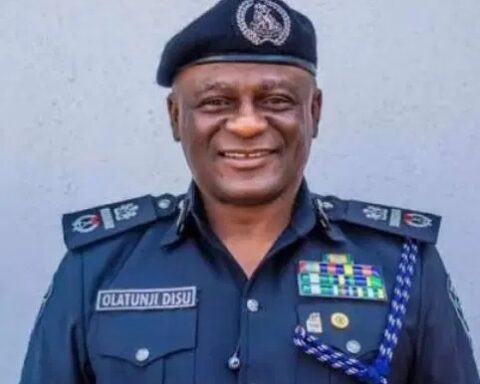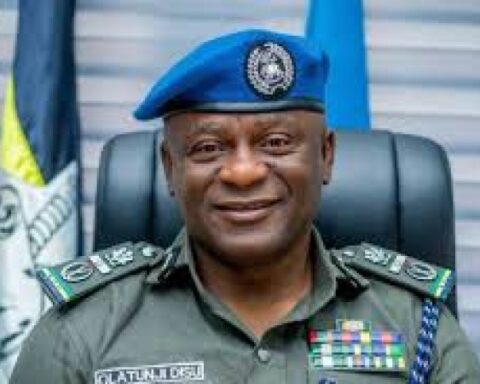Tension remains high in N’Djamena, the capital of Chad, following a brazen attack on the Presidential Palace late Wednesday night.
Armed assailants, suspected to be members of the Boko Haram insurgents, had launched a coordinated assault that left several security personnel injured and one dead. Eighteen members of the insurgents were also killed, according to a government spokesperson in the capital, N’Djamena.
Residents said heavy gunfire and explosions were heard near the palace, sparking panic in surrounding neighborhoods. Authorities have since cordoned off the area as investigations intensify, with the government blaming “external forces” for orchestrating the assault.
The attack has heightened fears of political instability in Chad, a country already grappling with internal conflicts and security threats from extremist groups in the region.
President Mahamat Idriss Déby, who was reportedly unharmed during the attack, addressed the nation in a televised speech, condemning the assault as an “act of terrorism” aimed at undermining the country’s unity.
He assured citizens that security forces are on high alert and vowed to bring the perpetrators to justice.
However, opposition groups have accused the government of exploiting the incident to suppress dissent, further deepening the political divide.
The Chadian Public Prosecutor said on Thursday – yesterday, January 9 – that the attackers swooped on the presidential compound overnight but were neutralized by security forces.
The prosecutor stated that gunfire erupted near the president’s office in the capital, N’Djamena, on Wednesday night as the military blocked surrounding streets.
Footage circulating on social media revealed intense gunfire as Chad’s Directorate General of Security Services and Internal Exile (DGSSIE) engaged the attackers. The forces killed several attackers and arrested others during the operation.
The government later announced that it had foiled an attempt to destabilize the country and that the situation was under control.
Chad’s public prosecutor reported that 24 armed assailants drove up to the presidential palace on Wednesday evening, feigned a breakdown, and attacked security guards manning the gate. They killed two guards and lightly wounded five others as they tried to enter the compound. Security forces killed 18 of the assailants and wounded six, who were taken to a hospital, the prosecutor added.
Investigations have been launched to identify all instigators and accomplices, the prosecutor said in a statement.
In an earlier interview on national television, government spokesperson Abderaman Koulamallah said the assailants, who seemed intoxicated and disorganized, were only armed with knives and machetes.
Security sources and researchers noted that there was still a lot of confusion surrounding the incident, which sparked speculation it could be linked to jihadist groups, ethnic tensions, or discontent over the fallout of a war in neighboring Sudan.
“It is too early to draw conclusions over exactly what happened,” a security source in N’Djamena said. Koulamallah suggested it was “probably not” a terrorist act.
Analysts observed that the attack came at a delicate time for Chad, which recently scrapped a defense cooperation pact with longtime partner France, making it a key Western ally in the fight against Islamist militants in West and Central Africa’s Sahel region.
The region has been rife with insurgencies, including those linked to Islamic State, al-Qaeda, and Boko Haram, for more than a decade. Military authorities in Mali, Burkina Faso, and Niger, which shares a border with Chad, have recently turned their backs on the West in favor of Russian military support.
‘Tensions high ‘
Reuters reported that N’Djamena was calm on Thursday morning, with daily life resuming its course.
There was no additional gunfire during the night, although some residents said the military was still blocking access to neighborhoods around the presidency.
Chad is led by President Mahamat Idriss Déby, who seized power after rebels killed his father, longstanding President Idriss Déby.
The older Déby had ruled Chad—which is rich in oil resources but one of the poorest countries in Africa—since a military coup in the early 1990s.
Crisis Group expert Enrica Picco noted that the force and rapidity with which the attackers were neutralized suggested the presidency was already on alert.
“Tensions are very high at the presidential palace,” she said.
“Déby knows that he has many enemies who want to replace him or change the way Chad is dealing with different crises.”



























